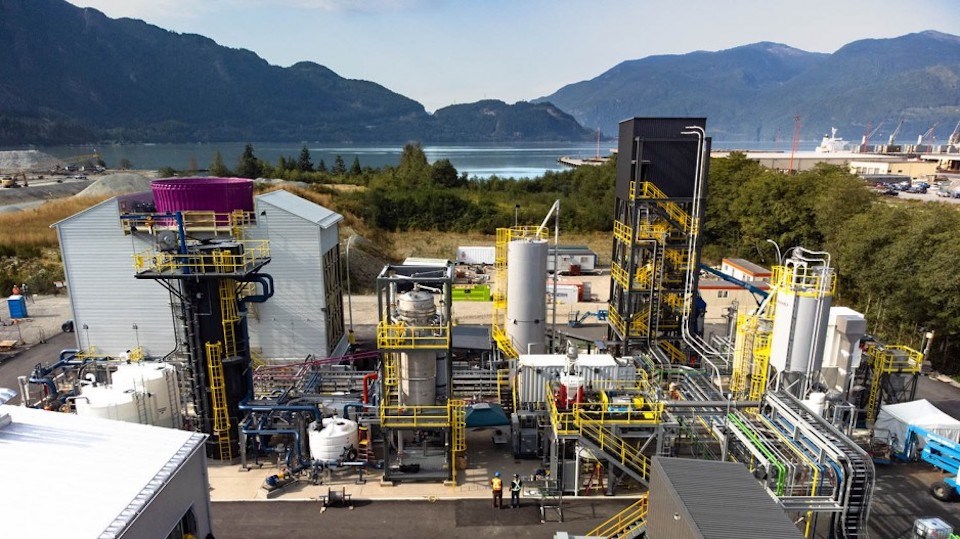Squamish’s Carbon Engineering announced an investment in the millions from Airbus and Air Canada that will support the advancement of its Direct Air Capture (DAC) technology.
At a news conference at the facility Nov. 17, leadership from Carbon Engineering (CE) and Airbus said the investment would help decarbonize the aviation industry. Air Canada will invest $6.7 million, while Airbus would not disclose the total amount it would invest.
“Today, Airbus, our partner in developing an aviation solution for climate change over the past several years, is contributing by helping to fund this facility into the future and the important innovation work that will go on here,” said Daniel Friedmann, the CEO of Carbon Engineering. “Also, Air Canada is taking a leading role in decarbonizing aviation, bringing more investment in our innovation to this facility.”
This latest announcement comes on the heels of CE announcing a second carbon capture project in Texas, which aims to have the capacity of capturing 30 million tonnes of CO2 annually.
The Squamish-based company and its U.S. partner, 1PointFive, have already begun building a half-million-tonne DAC facility in the Permian Basin in Texas, which they hope will be operational by the end of 2024.
This is not the first time Airbus and CE have worked together. In March 2022, Airbus agreed to the pre-purchase of 400,000 tonnes of CO2 over four years back with 1PointFive.
“We want to reinforce our trust and our support in carbon engineering and invest again in their technology to accelerate its development and deployment,” said Karine Guenan, vice-president of the Airbus ZEROe ecosystem, at the news conference.
In the simplest of terms, the DAC technology works like a tree, according to Airbus, which sucks the air out of the atmosphere and extracts the CO2.
From there, the CO2 can be either sequestered by releasing it below the Earth’s surface or reused with other renewable technology like CE’s AIR TO FUELS, which creates a synthetic fuel that is nearly carbon neutral.
This latest investment from Airbus and previous agreements are part of the overarching climate goal of reaching net-zero carbon emissions by 2050 for the aviation industry, which contributes over 3% of emissions in Canada and about 12% of emissions in the transportation industry.
“This investment [will] contribute to the Canadian economy, making the country an actor in supporting our ambitions toward net zero by 2050,” said Guenan.
In 2021, CE announced a memorandum of understanding with Air Canada to explore opportunities to decarbonize its airplanes as well.
“We are proud to invest in CE to further advance new, transformational technologies towards carbon removal commercially,” said the president and CEO of Air Canada, Michael Rousseau, in a news release about the recent investment.
“We can decarbonize aviation with a reasonable amount of time and sites. Airbus and Air Canada are leading the way to make this possible,” said Friedmann.





